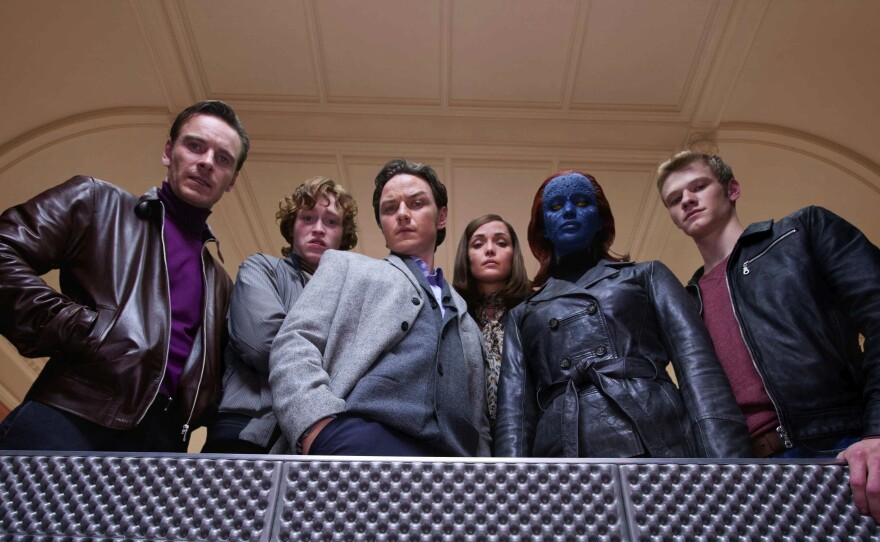Marvel's "X-Men" franchise wasn't doing too well moving forward so they decided to go back in time for "X-Men: First Class" (opening June 3 throughout San Diego) to see how Charles Xavier and Erik Lensherr met.
"X-Men: First Class" is a prequel/origin kind of film. The "X-Men" franchise had an intriguing start in 2000 with Bryan Singer at the helm but went completely in the toilet with the Brett Ratner film "Last Stand" in 2006. So the best way to revive the series seemed to be to either reboot or go back in time so you could have a complete recasting of the roles and even a revisiting of which characters to highlight. The choice was to go back in time for a prequel.
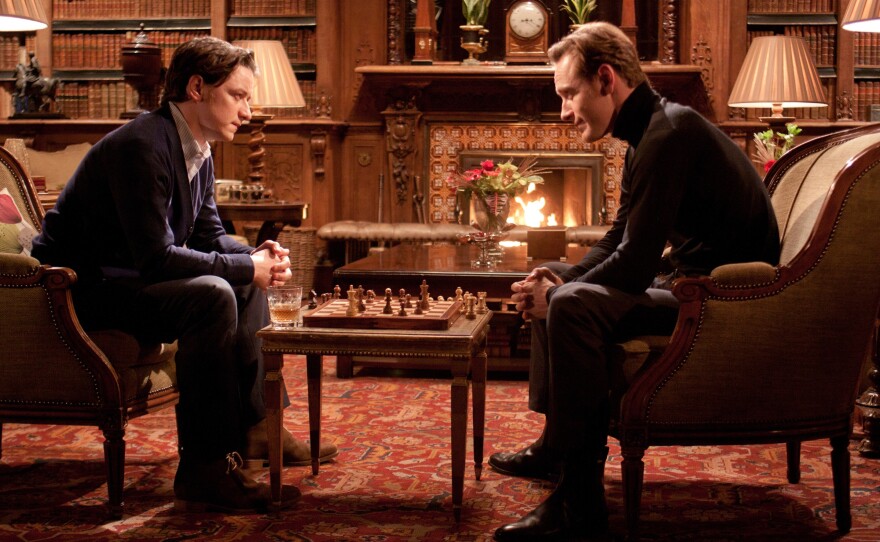
The film chooses to set the story of Charles and Erik in the turbulent social times of 1960s America. There was even talk of how the Martin Luther King, Jr./Malcolm X relationship would inform the relationship of Charles and Erik. All this was fitting to a comic that was infused with issues of prejudice, conformity, social unrest, racial tensions, and a government trying to deal with a restless and sometimes rebellious populace. All this made me look forward to the new "X-Men" film in a way I hadn't with the others. I didn't read the comics as a kid but I watched the old TV show with my son and read some of the Wolverine comics. I had always been partial to Beast as the character I enjoyed most, not only was he appealingly fuzzy and blue but he was prone to quoting Shakespeare and hanging by his feet. So I felt cheated that Beast never figured prominently in the previous films and that the previous films seemed to deal only tangentially with the more serious themes raised by the comics and cartoons.
So I went into "X-Men: First Class" with a hopeful sense. Sadly, though, I was disappointed. First of all it starts during World War II with the Nazis (can't Hollywood think of any other type of villain?). The opening title is, oddly, a flipped coin that has the Nazi insignia on one side and then the "X-Men: First Class" logo on the other. Not sure what that's trying to say or convey but the coin comes in handy later on. In the concentration camps, there is a harsh scene involving the death of one character's mother that some little kids might find upsetting.
Then when the film jumps to 1963 [okay it has been pointed out that the Cuban Missile Crisis was 1962 but I swear a title in the film stated it was 1963 but I can't remember], rather than focusing on the social unrest of that decade, the film was more interested in the international conflict with Russia and centered the story on the Cuban Missile crisis. Yes, the Cuban Missile crisis was orchestrated by -- and resolved by -- mutants! But this is less interesting than the idea that there is now a mutant race that is trying to figure out a way to coexist with humans. If that were the prominent backdrop then the Malcolm X/King dynamic could actually play out effectively. But those intriguing dramatic elements fall by the wayside in favor of a more conventional and formulaic action film. Oh but we do get a cutaway to the black actor playing Darwin when baddie Sebastian Shaw (Kevin Bacon) talks about enslavement. Talk about being blatant and obvious. There's also a slogan, "Mutant and Proud," that harkens back to something the Black Panthers might have coined.
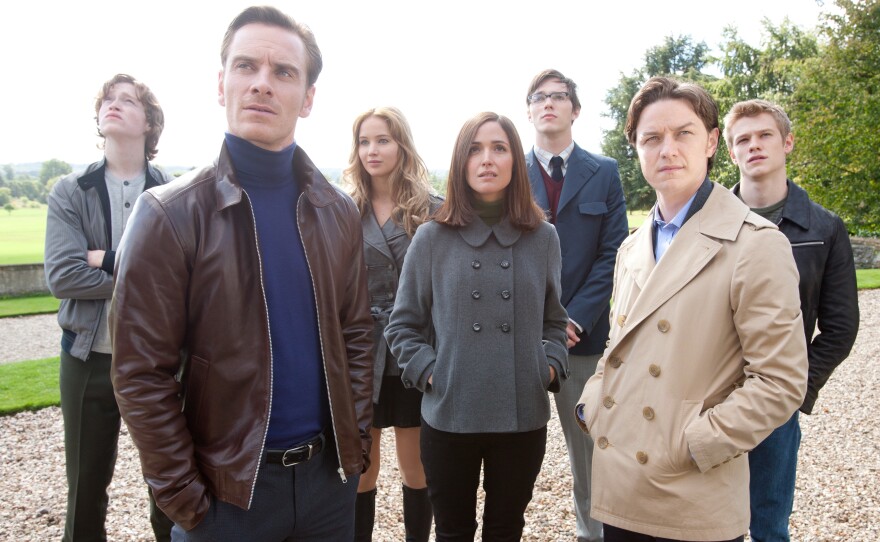
But the seeds of that drama are the best thing in "First Class" and I wish there was more of the relationship between Charles and Erik, played to perfection by James McAvoy and Michael Fassbender. Fassbender is especially good, giving us a sense of depth to a character that is not all that well-written. Like Sam Worthington in "Avatar" and "Termination: Salvation," Fassbender brings dimensionality and interest to formula elements. We get a nice contrast between them and their upbringings, with a hint to social, economic, and class differences. When they come together we get a sense of how those differences can play out and their brief discussions are fun and interesting. They are the heart of the story and they make the film feel real. Now you may say that this is a comic book fantasy film and it doesn't need to be real but every film needs to create a credible world in which it operates. McAvoy and Fassbender do that and create characters that I believe and care about. It's the rest of the film that has problems. Even if I check my brain at the door I have trouble buying into the world of this X-Men film.
Matthew Vaughn brought the comic book "Kick-Ass" to vivid life on screen but in the case of the "X-Men" comics he has more trouble connecting to the source material. In fact, that connection is so bad that it drove my friend and fellow critic Ian Forbes off the deep end. Check out his review at Sobering Conclusion for a devout comics' fan's review of "X-Men: First Class" and of all the film's errors in adapting the comics. Since I haven't read the comics, my disappointment came for different reasons. For one, Vaughn not only fails to use the social unrest of the 60s but he also fails to get any period details right. Jennifer Lawrence's Raven gets to wear mod 60s fashions but no one else really has much of a 60s sense of fashion. Same thing goes for the sets and visual style of the film.
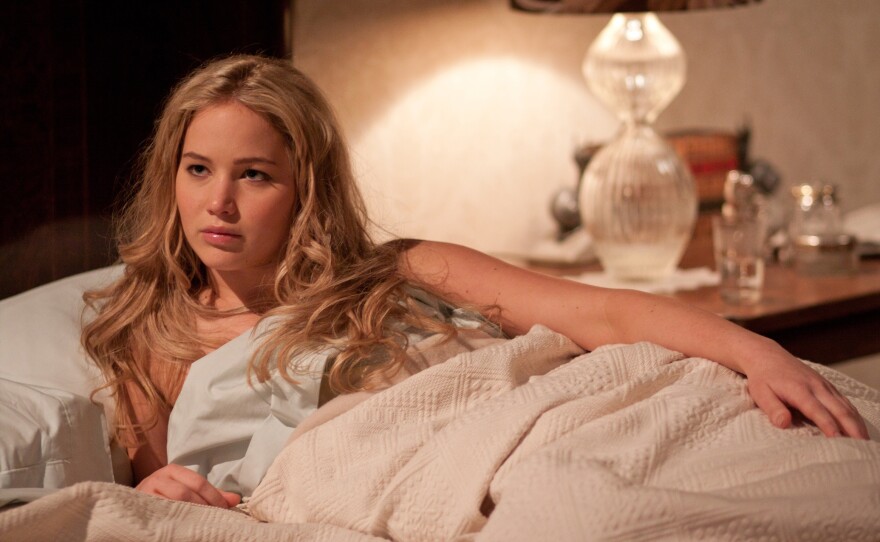
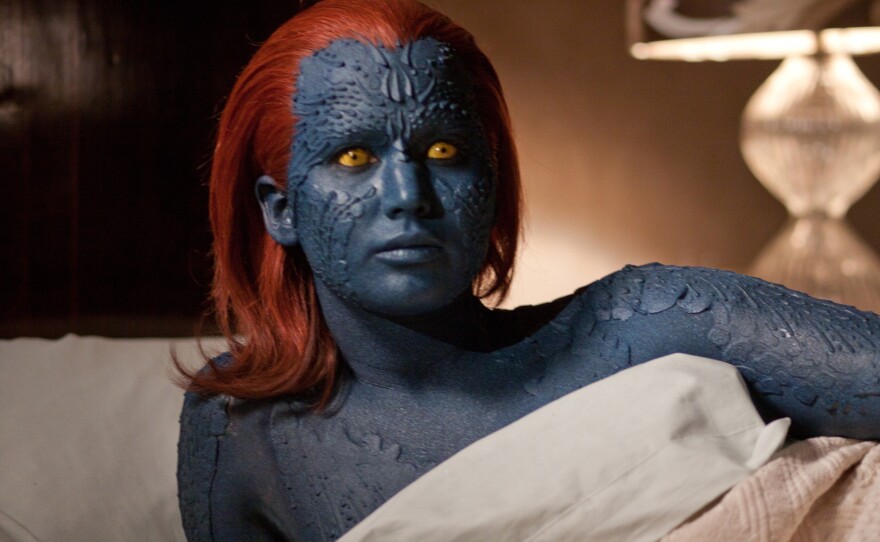
Then there are the special effects, which are anything but special. Each time Raven transformed into Mystique I felt myself pulled out of the film because the make-up looked like someone in blue body paint with blue bathtub anti-skid stickers strategically placed on top. And January Jones' Emma Frost never looked like anything but a badly done CGI effect. The transformation scenes looked and felt like the way it was done back in the 1940s when Lon Chaney, Jr. transformed through a series of dissolves from human to werewolf. Now if Vaughn was a more stylish director he could have made doing the transformations in a retro, old school manner part of the film's style. You get a hint that maybe that was part of his thinking when you see some of the deliberately cheesy maps he uses. But the effects too often just seem lame and lazy rather than designed to recall a bygone era. There are a lot of big effects scenes and a lot of blowing things up but none of it plays with much impact or conviction. I always felt that I was watching a movie rather than being transported to another world like Guillermo Del Toro did in the "Hellboy" films.
Once again a comics adaptation proves frustrating because there are good elements that go to waste and a resistance to what is actually good in the source material. Vaughn and his co-writers Ashley Edward Miller, Zack Stentz, and Jane Goldman can't seem to differentiate their good material from bad. So each time we start to settle into the scenes between Charles and Erik, we get pulled out for the lame teen drama amongst the "first class" of young X-Men or the half-baked Nazi villainy of Sebastian Shaw (Kevin Bacon needed better direction so he could either be seriously evil or over-the-top hammy). The film also tapped into one of my pet peeves regarding superpowers, and that is that characters are often made invincible to start with and then, when the script calls for it, can suddenly be subdued by a punch. I hate when superpowers seem inconsistent because -- like the bad make up -- it pulls me out of the film and reminds me that I'm watching a movie.
"X-Men: First Class" (rated PG-13 for intense sequences of action and violence, some sexual content including brief partial nudity and language) is better than the last "X-Men" sequel but that's not saying much. But McAvoy and especially Fassbender do make the film worth seeing. They give it a genuine emotional core that is interesting but ultimately wasted. Maybe the more accurate and descriptive title might be "X-Men: Special Ed" or "Remedial Mutant Class" so you don't go in with high expectations.
BTW: There is a funny cameo by Hugh Jackman who, appropriately, gets to drop the only f-bomb as Wolverine.
Companion viewing: "Hellboy," "Blade," "Kick-Ass"

